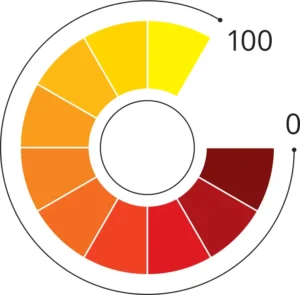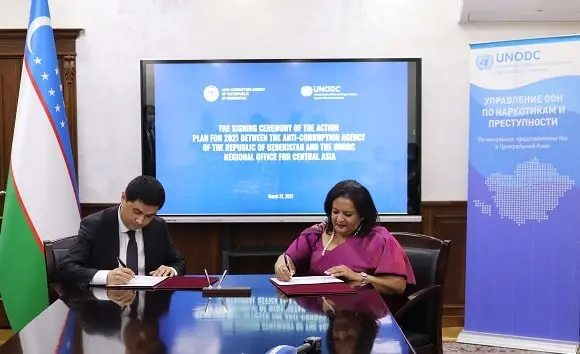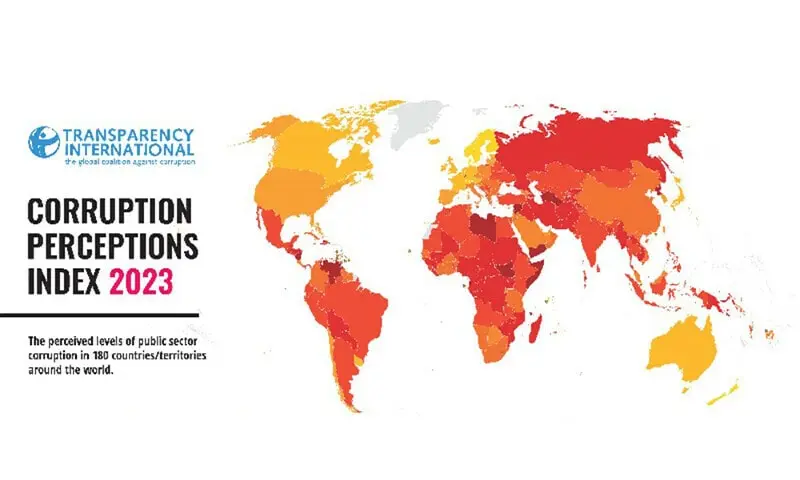Tashkent, 1 February 2024 (TDI): Uzbekistan has made significant strides in the fight against corruption, according to the Corruption Perceptions Index (CPI) 2023.
The recently released statistics by Transparency International on Tuesday demonstrated Uzbekistan’s efforts in effectively curbing the evil of corruption.
Transparency International highlighted the most notable enhancers in the Corruption Perceptions Index during the past decade. Uzbekistan topped the list with the acquisition of plus 15 points overall.
The score of Uzbekistan has improved by gaining two points from 31 in 2022 to 33 in the year 2023. The country now stands at the rank of 121 out of a total of 180 countries.
Akmal Burhanov, Head of State Anti-corruption Agency of the Republic of Uzbekistan, hailed the positive results. He said the establishment of the Anti-corruption Agency in Uzbekistan was one of the key actions taken to achieve such a remarkable outcome.
Furthermore, enhancements made in legislation and the liberalization of the economy were also crucial steps in this regard.
CPI score calculation
The Corruption Perceptions Index (CPI) is the most extensively used global corruption ranking system. It assesses the apparent corruption of each country’s public sector, according to experts and businesses.
The CPI evaluates 180 nations and territories based on perceived levels of public sector corruption, with scores ranging from 0 (very corrupt) to 100 (extremely clean).

Each country’s score is a composite of at least three data sources collected from 13 distinct corruption surveys and evaluations. Several renowned institutions, like the World Bank and the World Economic Forum, collect these data sources.
Uzbekistan’s anti-corruption efforts
At the initiative of the President of the Republic of Uzbekistan, the Action Strategy for the five priority sectors of development for 2017-2021 was adopted. This document is critical in enhancing the efficacy of the fight against corruption.
Also, the anti-corruption law implemented and numerous legal acts enacted. In particular, Uzbekistan’s President Shavkat Mirziyoyev signed the Law “On Combating Corruption” in 2017.
The law outlined the primary directions of state policy in the fight against corruption. It addressed the structure of competent authorities, citizens’ self-government bodies, civil society institutions, the media, and citizen participation in this domain.
Additionally, the decree emphasized strategies to prevent corruption, the necessity of punishment, and the need to strengthen international cooperation.
Also Read: Uzbekistan: On the path to normative & institutional development of fight against corruption
A specific state authority established to ensure the efficient execution of the regulations and reinforced the organizational framework for public policy in this field.
Furthermore, in 2020, Uzbekistan formed a new Anti-Corruption Agency to supervise and coordinate anti-corruption actions across the country.
To consolidate and manage their mutual relationship, the United Nations Office on Drugs and Crime (UNODC) and the Anti-Corruption Agency signed an Action Plan outlining collaborative efforts.

Ashita Mittal, UNODC’s Regional Representative for Central Asia, praised Uzbekistan’s efforts to combat corruption. Creation of a “integrity vaccine” through anti-corruption compliance and other preventive methods is critical for Uzbekistan at this stage of growth.
She emphasized that improving openness and accountability in the public sector is a primary priority. In addition, raising the level of corruption proofing in laws is also a key focus.



